VIRGINIA ONCOLOGY ASSOCIATES
Two new locations provide cancer patients with compassionate care and the latest advanced treatments
by Cristi Sanchez

Scott Cross, MD, is the Practice President and one of forty oncologists with Virginia Oncology Associates
In addition to Virginia Oncology Associates's physician partnership model, Dr. Cross is particularly excited about some new innovations in treatments available at the Brock Center. For example, the facility now has two new linear accelerators for radiation therapy, one of the most advanced and up-to-date cancer treatments available. "We are seeing a rapid increase in cancer-specific technologies," Dr. Cross explains. "The linear accelerators are an exciting, fascinating technology. The therapy delivers a targeted beam of radiation to the specific areas where cancer has been located. Whereas traditional radiation can injure surrounding cancer-free tissues, the linear accelerators minimize injury to non-targeted tissue. It also can result in a shorter treatment duration completed in only three to five sessions as opposed to treatments spanning three weeks."
In addition to being a practicing oncologist, Dr. Cross is also a research scientist who has great enthusiasm for being the head of Virginia Oncology Associate's STEM Cell Transplant Program-one of only three in the state of Virginia and one of 135 in the nation. It is an accredited program adhering to the most stringent clinical standards. As part of the STEM Cell Transplant Program at the Brock Center location, Dr. Cross also oversees the expanded CAR T-cell Therapy Program. This is a powerful new form of immunology cancer therapy that is quickly moving to the forefront of such treatments due to its remarkable results in clinical trials.
"We are the first group in the area and the only Virginia location outside of VCU in Richmond to provide CAR T-cell therapy," Dr. Cross says enthusiastically. "This is a promising new treatment that has FDA approval for certain types of non-Hodgkins lymphoma and certain leukemias and myelomas. It's a newer type of cellular therapy that harnesses the patients' immune system's ability to fight cancer. The process modifies the patients' extracted blood cells with mild chemotherapy. Then, we re-infuse the blood cells back into the patient to better utilize their own immune system to help combat the cancer. With those modified blood cells in their bodies, CAR T-cell therapy provides patients the benefit of 24/7 treatment while avoiding many types of side effects experienced with traditional chemotherapy. It's quite extraordinary science."
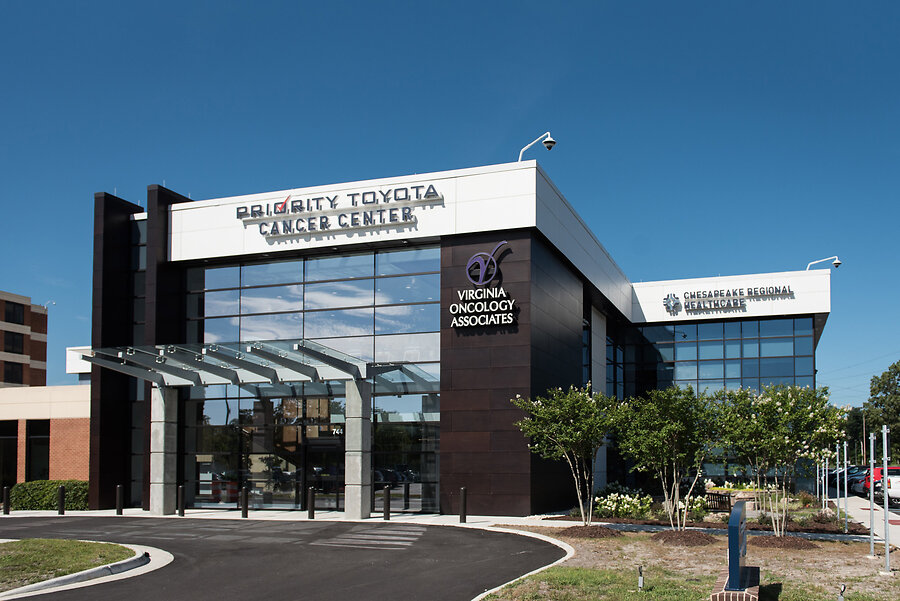
The Chesapeake Regional Medical Center location
"We are the first group in the area and the only Virginia location
outside of VCU in Richmond to provide CAR T-cell therapy," Dr. Cross
says enthusiastically. "This is a promising new treatment that has FDA
approval for certain types of non-Hodgkins lymphoma and certain
leukemias and myelomas. It's a newer type of cellular therapy that
harnesses the patients' immune system's ability to fight cancer. The
process modifies the patients' extracted blood cells with mild
chemotherapy. Then, we re-infuse the blood cells back into the patient
to better utilize their own immune system to help combat the cancer.
With those modified blood cells in their bodies, CAR T-cell therapy
provides patients the benefit of 24/7 treatment while avoiding many
types of side effects experienced with traditional chemotherapy. It's
quite extraordinary science."
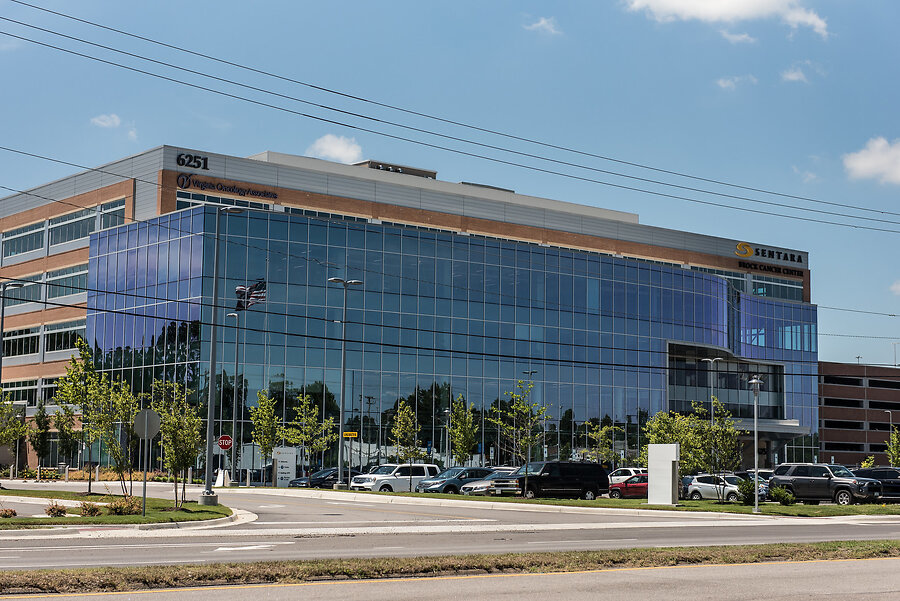
Norfolk /Brock Cancer Center location of Virginia Oncology Associates
It was the science of oncology that initially drew
Dr. Cross to the field. Wanting to be a research scientist, he earned
his Ph.D. before earning his medical degree. His primary research
interests included clinical immunology, hematologic malignancies, and
supportive care. "I wanted to do research, and I found it very
interesting for a time," he says. However, things changed during his
fellowship at Duke University for Hematology and Internal Oncology,
where he spent some time in inpatient care.
"I
was doing inpatient rotations at an outreach clinic at Duke," Dr. Cross
recounts. "Doing patient care, I found that I got to talk to people and
help people. It was helping people and watching their small day-to-day
and week-to-week victories that I found very rewarding. That was when I
decided to pursue a medical degree to become a practitioner. Now I have
the best of both worlds in that I get to see the benefits of research
as it plays out in practice. I find it all deeply satisfying."
In
fact, Dr. Cross notes that all of his colleagues at Virginia Oncology
Associates share his empathy and compassion for their patients.
"Everyone at our practice is committed to improving the lives of
patients impacted by cancer and blood disorders with state-of-the-art
compassionate and personalized care," he says. "Our practice is very
fortunate that we have such an empathetic team of medical professionals
in every capacity. We do our best here to make sure we provide our
patients with the best resources available and the most compassionate
care possible as they face their diseases head-on."
To
that end, Virginia Oncology Associates also has social workers on
location to integrate care that will assist patients and their families
with the emotional, mental, and physical toll of their diagnosis,
disease, and treatment and direct them to appropriate additional support
and community resources.
Virginia Oncology Associates is a large and diverse specialty group with generalists and specialists that treat breast, gynecological, lung, kidney, head, and neck cancers, as well as neurological malignancies and blood cancers and disorders. Although open throughout the pandemic, however, Dr. Cross has noticed the impact Covid has had on cancer diagnoses at his practice.
Virginia Oncology Associates is a large and diverse specialty group with generalists and specialists that treat breast, gynecological, lung, kidney, head, and neck cancers, as well as neurological malignancies and blood cancers and disorders. Although open throughout the pandemic, however, Dr. Cross has noticed the impact Covid has had on cancer diagnoses at his practice.
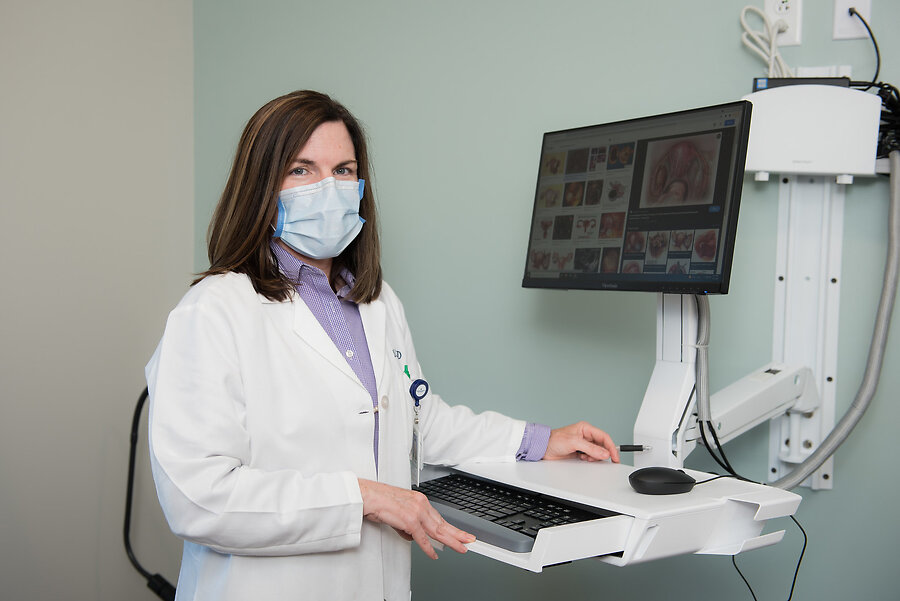
Stacey Rogers, MD, FACOG, is one of three gynecologic oncologists with Virginia Oncology Associates.
"Over the past
twelve months, we have definitely seen that people are presenting with
later-stage disease," he says regretfully. "The potential of catching
COVID kept many people from getting their annual screenings and also
kept them from addressing cancer symptoms. We highly encourage patients
to avoid ignoring symptoms and get their regular screenings early, as
it's been proven that in at least four cancer areas, screenings save
lives. So, early detection and early treatment can be key to greater
odds of survival. In addition, with the number of people receiving the
vaccine, we hope to see people less hesitant to come in for care."
With
compassionate care and its two new state-of-the-art facilities,
Virginia Oncology Associates offers comprehensive resources to
facilitate the convenience of cancer care all under one roof. In
addition, with physicians on staff from the leading training programs
throughout the country, the practice continues to advance streamlining,
simplifying, and personalizing cancer care for all patients through
collaboration between generalists and subspecialists and new advanced,
up-to-date treatment technologies.
"Quality,
compassionate and convenient patient care is our goal," Dr. Cross
conveys. "No matter the location, patients will be seeing someone with
expertise in their condition and have easy access to specialists and
treatments. Our main goal and purpose here are to make our care as
compassionate and convenient to our patients as possible."
Virginia Oncology Associates
6350 Center Dr.
Norfolk, VA 23502
213-5680
CURRENT COLUMNS
Publisher’s Point 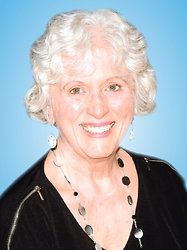
Time To Moveby Jean Loxley-BarnardOn The Front Porch With You 
Memories of Homeby Rob LauerChildren First 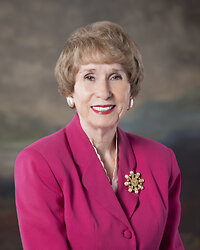
Dandelion Timeby Becky AdamsRelationships 
When Your Security Blanket is in the Dryerby Dr. Bill Austin
